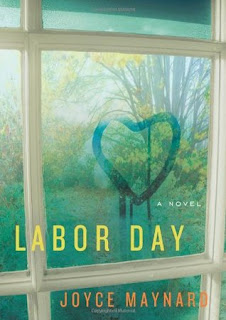by Neal Shusterman
Imagine a world where humanity has conquered death. There's no more disease, hunger, poverty, ageing, or death by accident. Sounds really neat, right?
Until you consider there's also no pain. Or joy. Or any intense feelings. People sort of drift along in life, "turning the corner" (resetting to a younger physical age) every so often, marrying and remarrying. Just living their lives. The only possible wrinkle in someone's life is when a Scythe drops by.
If a Scythe shows up in your home, school, or office, it usually means someone is going to die. You, see, a Scythe is tasked with "gleaning" -- killing -- people, in order to keep the population under control.
Every so often, a Scythe takes on an apprentice, in order to teach them the ways of being a Scythe and how to glean according to their moral codes. One just doesn't take a life indiscriminately. There's a method to the madness. Honorable Scythe Faraday raises more than a few eyebrows when he takes in
two apprentices. Usually a Scythe only takes one apprentice. For the next year, Citra Terranova and Rowan Damisch will endure training in the physically and mentally demanding art, science, and philosophy of ending another person's life. Whichever one of the two succeeds in passing a test at the end of the year will become a new Scythe. The other will go home.
At least that's the way it's supposed to work. Until Scythe Goddard proposes a resolution at one of the Scythes' conclaves that the successful apprentice must glean the unsuccessful one. This sets the rest of the book careening toward it's suspenseful conclusion.
Neal Shusterman never ceases to impress me with his world building. At first glance, this is a perfect world, until Shusterman reveals, the levels of corruption roiling under the perfect surface. Everything Shusterman creates -- from nanites that heal every injury and cure diseases to the Thunderhead, which has evolved from the Cloud into a benign, omniscient presence that governs society -- are just within the realm of possible, so you aren't grappling with the science of science fiction and are able to dive into the knotty philosophical questions that come with being a Scythe: is there room for compassion; why can't a Scythe feel that being a Scythe is a calling; and is it possible to enjoy one's job as a Scythe?
Even though the laws of Scythedom are presented as a absolute, the laws and rules of Scythes, like everything, are open to interpretation, which is where a lot of the conflict arises. And to throw another wrench into the plot, Scythes aren't subject to the laws that govern the rest of society and only live by ten ironclad commandments. They even live outside the realm of the all-knowing and all-seeing Thunderhead.
The book is heavy on intrigue, but (thankfully!) light on romance. Which makes sense, because Scythes, rather like Jedi, aren't supposed to have emotional attachments to other people.
Structurally, the book goes back and forth between Citra, Rowan, Faraday, Scythe Curie, and other characters. Each chapter opens with an excerpt from the diary of a Scythe, usually Scythe Curie, known as the Grand Dame of Death. It's fascinating to see the different points-of-view of Scythdom and how different Scythes interpret their moral codes.
This book drew me in so subtly and cleverly, that I didn't even realize I hadn't been able to put it down until I finished it.
Scythe so impressed the Printz committee, that they gave it an honor, even though their habit is to not award the first book in a series. It more than deserves its 2017 Printz Honor.
If you're looking for something that draws you in and doesn't let go, this is a book for you.
Scythe is the first of Shusterman's Arc of the Scythe series.
If you want to explore other books by Shusterman, read his National Book Award winning
Challenger Deep, or the
Unwind series.

